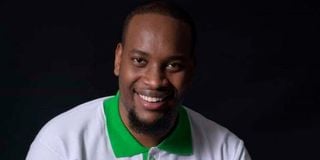Piano instructor who has set out to build a camel in Africa

What you need to know:
- I was very clear about what I wanted to do from the beginning. I had planned to study abroad and come back home to address our fundamental farming challenges.
- I considered my time out there a benchmarking exercise, to gain knowledge and build networks necessary for the execution of our business idea.
Taita Ngetich has benefitted from some of the most prestigious trainings and Fellowships in the world, including at Purdue University where he was a Mandela Washington Fellow in 2016. He has also undertaken a leadership and innovation course at Massachusetts Institute of Technology, and is currently enrolled at University of Warwick for an MBA.
The University of Nairobi graduate discusses gaps and opportunities in the agriculture sector, and why he is “building a camel in Africa”.
What is Illuminum Greenhouses and when did you launch it?
We are an agriculture-technology company founded in 2014 to build farming solutions for African farmers. Initially, we provided greenhouses and drip irrigation kits. Our current offerings include smart hardware systems to help farmers remotely monitor their farms. The end goal is to simplify complex farm activities through sensors, and to reduce guesswork in farming. Ultimately, we want to lure more young people to digital farming.
How has your training abroad broadened your understanding of global issues such as food security?
It allowed me to communicate clearly in the language the international community could understand. International investors use specific metrics to assess suitability for funding to those seeking to address challenges faced by local farmers, for instance. Meeting this threshold makes it easier to win partnerships. I am a firm believer of local solutions such as Illuminum Greenhouses for local challenges.
Did you experience any difficulties settling down in the country upon return?
Not at all. I was very clear about what I wanted to do from the beginning. I had planned to study abroad and come back home to address our fundamental farming challenges. I considered my time out there a benchmarking exercise, to gain knowledge and build networks necessary for the execution of our business idea.
But why did you choose to invest in Africa?
We wanted to build an organisation that is as tough as a camel. An organisation that could survive the harsh business environment in Africa. This is a long-term journey that requires patience. The advantage of providing local solutions is that you already understand the context of the problem.
You are a recipient of multiple awards and honours. What do these say about your values as a businessman?
They prove that Kenyan entrepreneurs can compete favourably with their counterparts from around the world. The conversation is starting to change on how the world views African businesses. Competing on the international platform is testament to our professionalism and the change we are creating among farmers. That said, our incubation at iHub through M-Lab played a key role in our recognition. Kenya is doing well on the entrepreneurship and innovation fronts, but we can learn a lot from other African markets, such as Nigeria, which are doing better.
From your experience in the start-ups ecosystem, what three pitfalls should young entrepreneurs avoid?
The first is doing too much with too little. In our earlier years, we took up multiple projects without the capacity to handle them. We were pursuing growth at the expense of quality execution, which adversely affected our prospects. Secondly, don’t hire quickly. Every entrepreneur desires to grow their team. Use your funds to create stability first. Third, avoid pulling in different directions when hard times kick in. This only strains the business. Instead, reward those who stick with the business during challenges.
There is an entry titled ‘‘piano instructor’’ in your CV…
My first job was as a piano instructor in Nairobi. That was after high school. Playing the instrument after a long day at work calms my nerves. I believe there is a connection between creative minds and innovation. My eureka moments have come either while playing piano or listening to classical music.
Not many young people get the opportunity to train overseas. How can local trainees leverage on their skills to create change?
The opportunity to study abroad was as a result of sharing success stories of what we had built locally. Share your story with the world through tools such as social media and the internet. The more audio-visual content you create and share, the more visibility you attain. International investors are always on the lookout for local ideas and partners as an entry point into local markets. Local skills are on demand now more than ever before.
How do you deal with personal challenges as a professional?
I take setbacks as part of my growth journey. Embracing failure fuels your drive to become better. My supportive family has given me the confidence to take risks which I probably wouldn’t have considered on my own. Occasionally, I catch up with other entrepreneurs to glean insights from them. I also read a lot of articles and business research papers in the Business Daily and Harvard Business Review. These allow me to approach my challenges from an informed perspective.
If you could prescribe three areas for urgent interventions to transform the country, what would those be?
There’s need to fast-track the proposed Startup Bill 2021 which will create a support environment for start-ups and catalyse their growth while creating employment.
By having a 50 per cent stake in local innovation and technology start-ups like in Singapore, the government will be able to drive public-private investments.
There is also need to increase credit guarantee schemes for start-ups. By availing securities to lenders on behalf of SMEs, the government would help to minimise the risk associated with lending money to start-ups.





